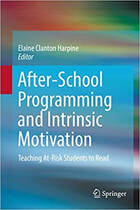
- “…public health experts believe social distancing is the best way to prevent a truly horrific crisis….” David Fisman, infectious disease epidemiologist, states that it is not true that children do not get COVID-19. He clarifies that the “Chinese data suggest that kids get the infection about as often as adults….” He then goes on to explain that “… given the eagerness with which they [children] share their germs, they could still be important infection spreaders.”
- Epidemiologist Adam Kucharski, author of The Rules of Contagion: Why Things Spread—and Why They Stop, is saying that the threat from children to adults should “cause us to worry.”
Therefore, can we truly say that it is safe to open schools-- for the children… for the teachers … for the families who the children go home to each afternoon? No, we cannot.
So, what are we to do?
As some have pointed out, we were not doing the absolute very best job of educating children across the nation before the coronavirus pandemic; therefore, this may be an opportunity for us to rebuild our educational system. Remember, as I stated in my 10-31-19 blog post, reading scores were worse in 2019 than they were in 2017. Yes, children in the fourth grade dropped from 37% in 2017 to 35% in proficiency in 2019—this is with an emphasis on common core standards, balanced literacy, and phonics. Students in eighth grade dropped from 36% in 2017 to 34% in eighth grade. Be careful. This does not mean that only 35% could not read. No, it means that only 35% could read at the 4th grade level. That leaves over half of the remaining 4th graders across the nation struggling or failing in reading at the fourth-grade level. The same is true for eighth graders; over half of the students were struggling or failing. Read the report correctly. Yes, it’s misleading. See the Nation's Report Card for details.
Our schools are failing and have been for a very long time. So, simply returning children to the classroom will not solve reading failure. Why? Experts say, it is because of the way we teach reading in the classroom [see my blog post from 2-14-20, #4, for research facts]. If you are interested in the entire series on why the 2019 scores are worse than 2017, check out my blog posts from 1-5-20, 1-18-20.
So, even if we send children back to the classroom and risk the threat of coronavirus spreading, we are not necessarily improving education for students across the nation. No, education still receives a failing grade.
Again, I will ask, what are we to do?
You may be saying, “I’ve heard that phonics is the answer.” Unfortunately, phonics is not the answer. Phonics is part of the reason we have so many children failing in reading today. Read the research, all of the research. Yes, there are those who are still out there selling phonics, but phonics is not helping our students read better. Yes, some children do better with phonics than they did with whole language. That is true, but phonics still leaves many students failing. Read the test scores. The 2017 and 2019 scores on the Nation’s Report Card show that over half of the nation’s fourth and eighth grade students were unable to read at their designated age level, both in 2017 and in 2019. The school pushed phonics in the 2018-2019 school year. Phonics is not the answer. For more research on why phonics fails, read my blog post of 10-26-19.
So, if phonics is not the answer and it is dangerous to send children back to the classroom, should we look for other alternatives? Yes, I think that we should.
I think for this spring, this summer, and in the fall, we should emphasize and develop an effective online educational program. No, I’m not saying that we should take education online permanently. I still very strongly believe in the group approach for teaching, especially hands-on teaching techniques, but I also see the health dangers that we face today and therefore I think that at this time we must do something different than simply giving up and stuffing children back into classrooms.
How? That will be the subject of my next blog post, and I welcome any online educational experts to weigh in on the subject.

 RSS Feed
RSS Feed
